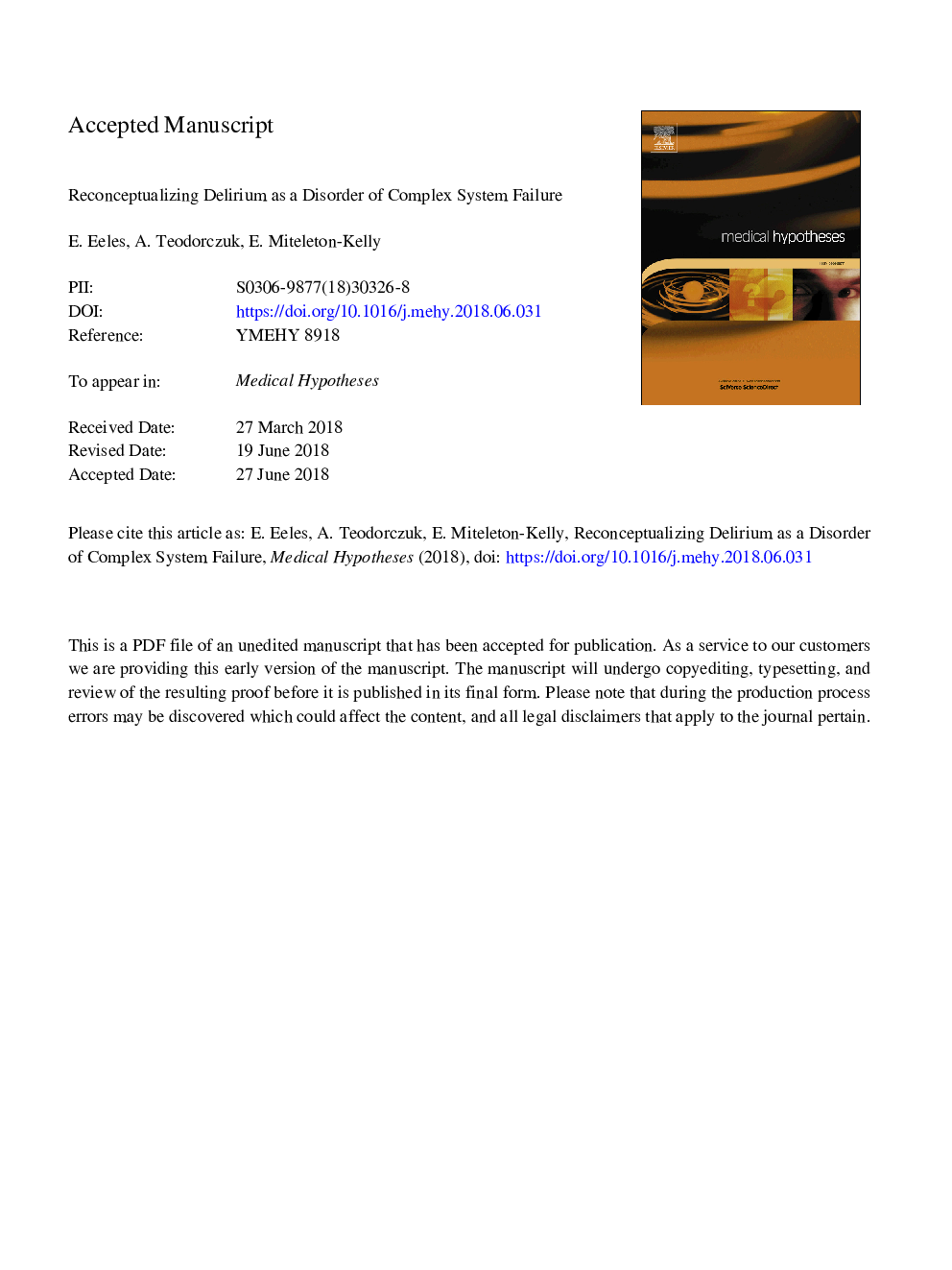| Article ID | Journal | Published Year | Pages | File Type |
|---|---|---|---|---|
| 8515310 | Medical Hypotheses | 2018 | 25 Pages |
Abstract
Delirium is conceptually elusive and falls outside of conventional biomedical models. Positivist theoretical paradigms of single linear causality are therefore insufficient to provide mechanistic enlightenment. Delirium does, however, share parallels with features of failure within a complex system. Lessons from complex system theory provide important potential healthcare dividends with respect to delirium. The brain is complex and exhibits emergence, a feature of consciousness, which is crucially impacted in delirium. Volatility, non-linear relationships and multiple point failures are cardinal features of complex system failure, thence delirium. An alternative emphasis away from end of chain analysis and oversimplification of cause and an attempt to avoid introduction of new forms of failure in a responsive healthcare environment are lessons from complex system theory. Insights from complex systems provide potentially important mechanistic underpinnings and new lines of research enquiry for delirium. Not least, a fuller understanding of delirium from a complex system viewpoint may help transform management and outcomes in one of the biggest challenges of acute healthcare.
Related Topics
Life Sciences
Biochemistry, Genetics and Molecular Biology
Developmental Biology
Authors
E. Eeles, A. Teodorczuk, E. Mitleton-Kelly,
